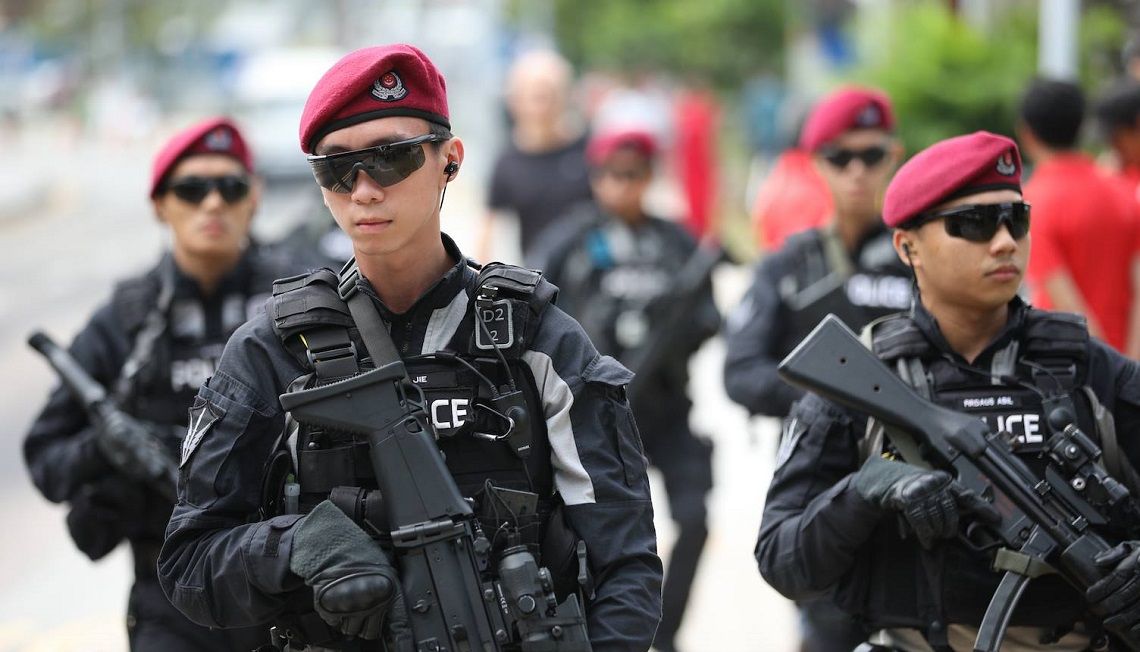Three lessons for the future from Singapore’s public safety team
By Nurfilzah Rohaidi
Interview with Rahul Daswani, Lead (Futures) and Organisational Development Champion at the Ministry of Home Affairs.

Main image: Ministry of Home Affairs Facebook page
It is challenging to predict the future, but there could be a science to it. In the absence of crystal balls and oracles, governments are setting up dedicated futures units to look ahead a few decades and see if present-day policies could stand the test of time.
“Singapore has been lucky from a futures standpoint. We never had the luxury of not planning for the future - we can’t afford to,” Rahul Daswani, Futures Lead at the Ministry of Home Affairs, tells GovInsider. His work revolves around determining the impact of anything from artificial intelligence to the ageing population on public safety.
He shares three lessons for governments anywhere to prepare for what lies ahead.
1. Create an emotional connection through storytelling and games
Public safety officers can be wrapped up in important and urgent tasks, with little time to worry about the distant future. How do you instil a sense of purpose in civil servants so that they take action right now?
One way is to create a strong emotional connection through narratives or stories, Daswani says. His team produces scenario planning products, which can take the form of multiplayer role-playing games. “The job of the Futures team is to make it more engaging and emotional,” he explains.
In his prior stint at the Centre for Strategic Futures, Daswani designed a game to explore whether the growth of GDP in Singapore was linked to the happiness of citizens. The game simulated a future where Singapore had high economic growth - and the implications that go along with that.
In this future, wealth was very unevenly distributed, favouring corporations and the rich. The people at the bottom of the economic totem pole were struggling the most. “People get really, really frustrated, which is an emotion you want, because then it motivates them to relook current policies and processes,” Daswani explains.
On the other hand, his team also simulated a version of the future where there was low economic growth in Singapore - but accompanied with stronger, closer communities and “opportunities for social progress”. Sharing and circular economies dominate this scenario, and people were more hopeful for the future, shares Daswani. “People were able to make their own meaning and be happy in this world.”
Almost 2,000 civil servants have played this game, he says. The home affairs ministry is looking into designing games and customised scenarios of its own, most likely for senior officers or leadership retreats, he continues.
In 2016, the Ministry of Manpower developed a game that simulated the challenges of hiring people or getting a job in three futures scenarios. This helped to show players the importance of lifelong learning to stay relevant. The ministry used this game in outreach efforts during the SGFuture Public Engagement sessions.
2. Consider evolving societal norms
For Daswani, a key trend for governments to watch is “changes in societal attitudes”. Today, more people are concerned with “privacy, free speech, LGBT rights”, for instance, he says.
Government engagement has to evolve to keep up with these changes in society's values. “That's something that we need to think about quite consciously and actively, in order to make sure that we're still relevant to people in Singapore,” he explains.
But this goes beyond engagement. There is an opportunity for governments to design policies together with citizens through co-creation and collaboration, he believes.
What’s more, Singapore is grappling with the reality of an ageing population - and its effect is being felt in the public sector. Agencies need to consider how to make do with less, and think about the investments they need to make both in technology and in people. “How do we upskill and reskill our workforce for new types of jobs?” says Daswani, who previously held a senior role at SkillsFuture Singapore.
3. Stress test policies
Governments should also consider stress testing policies, according to Daswani. “It makes current policies or the upcoming ones much more robust, because you’ve tested them out.”
Take for example Singapore’s Central Provident Fund (CPF), a compulsory savings plan which sets aside a certain percentage of a Singapore citizen’s income for retirement, healthcare and housing. In a world where the gig economy is much more prevalent, it may not be as effective to base this percentage on a citizen’s income, Daswani notes.
This encourages government to perhaps reevaluate the CPF policy, and consider the different proxies that could be used to calculate a citizen’s CPF contribution. “That's another good use case - not just imagining the future, but stress testing current policies and processes in different environments of the future,” he says.
Future predictions have been wrong before, as Bob Metcalfe learned the hard way. But the point is for governments to imagine many different potential scenarios, helping them to future-proof policies and guard against what may come.